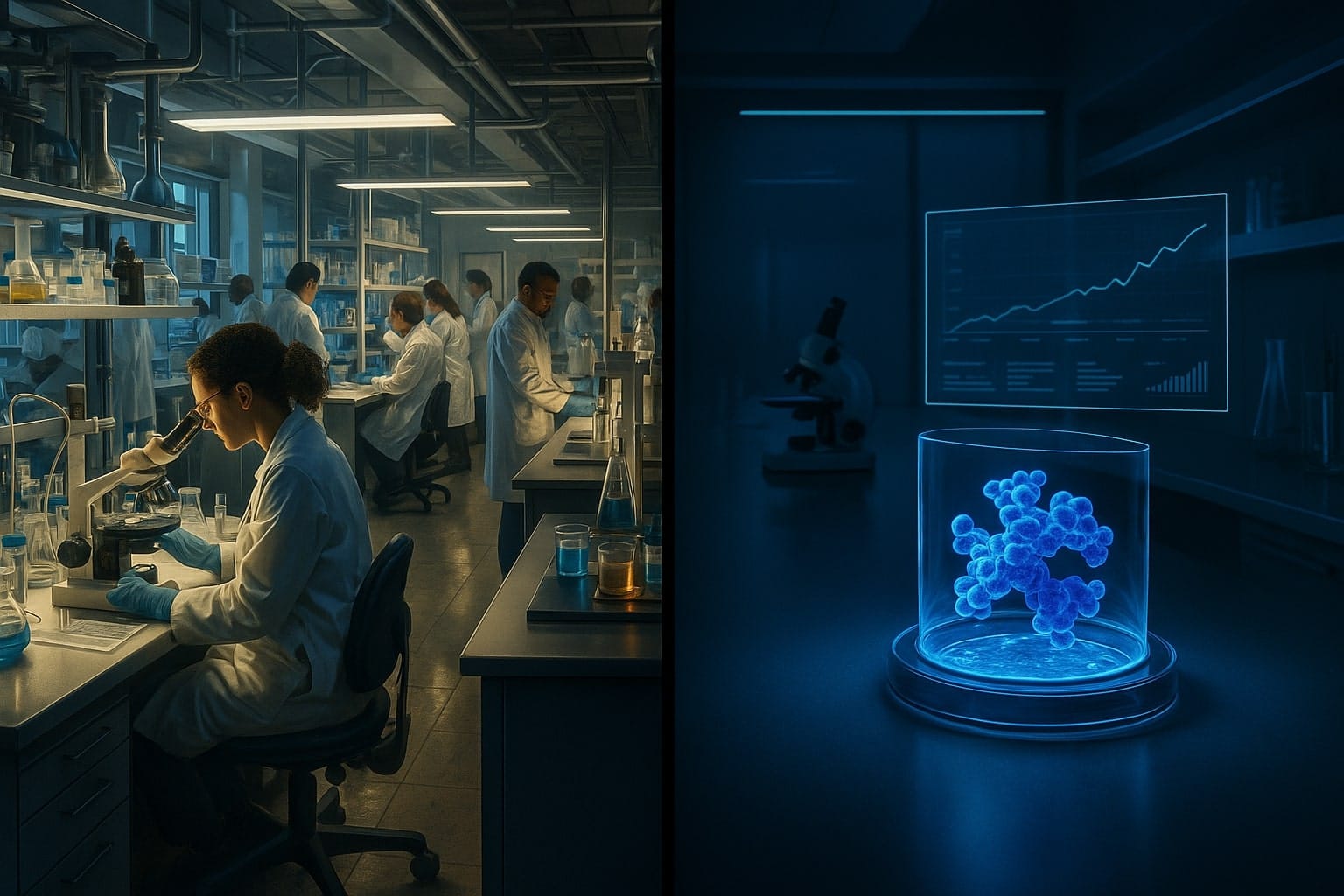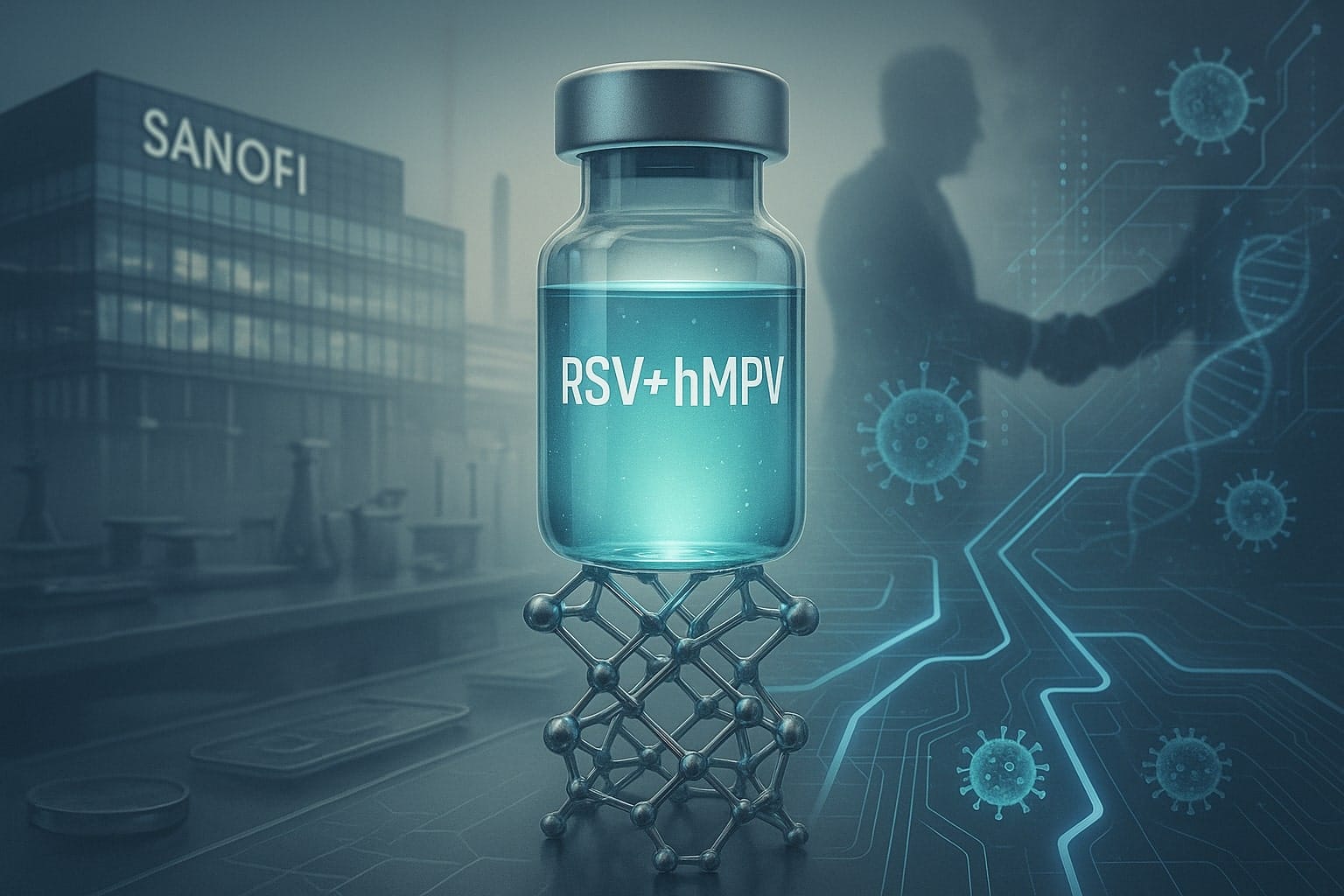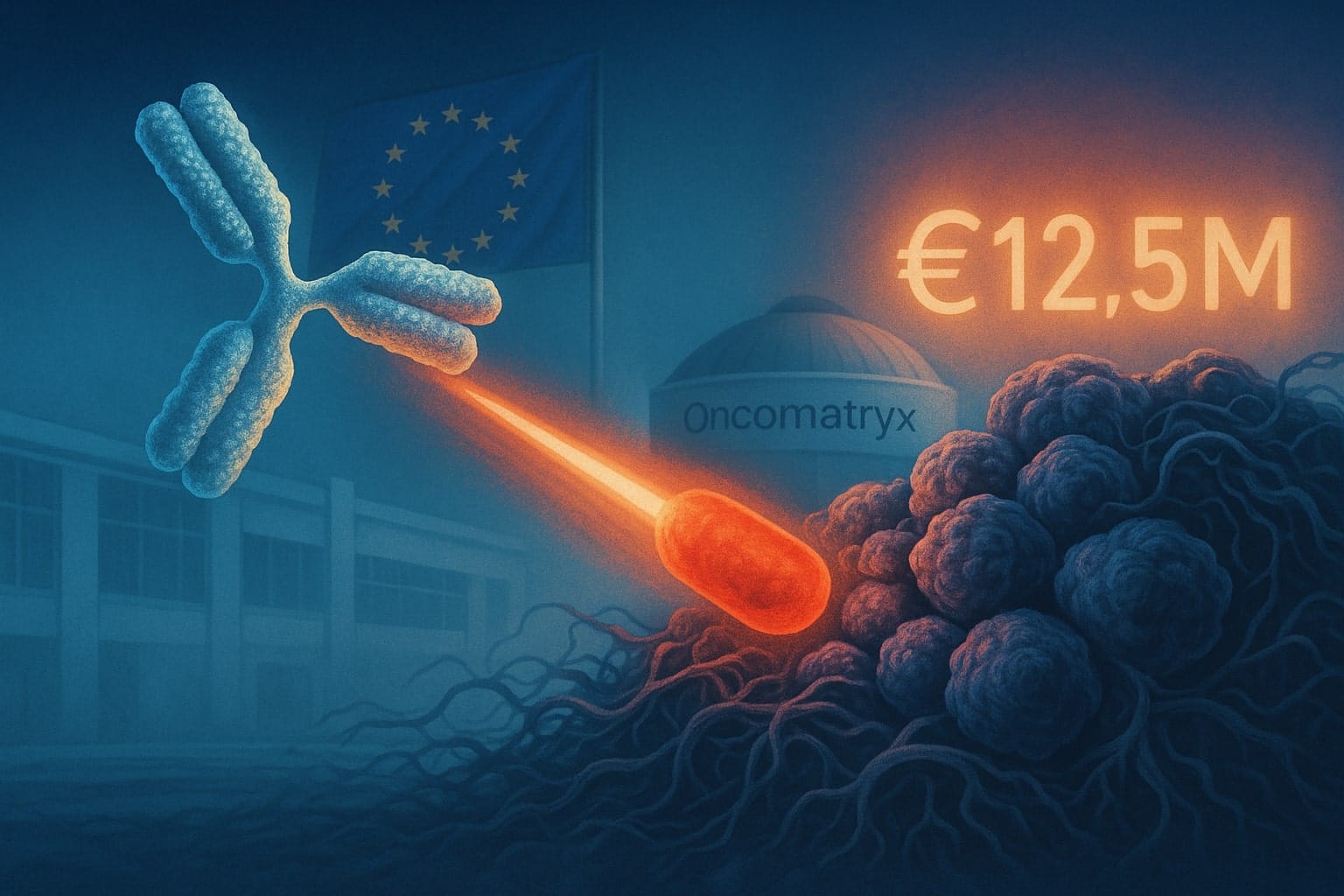For decades, the United States has led the world in biotechnology innovation. But that dominance is now under threat from China’s rapid advances in biotech, triggering growing concern in Washington. In a newly released report this week, a congressionally mandated panel delivered a stark warning: the U.S. is “dangerously close to falling behind China” in a field that could define economic and military power in the 21st century. American officials are waking up to a new reality that biotechnology – from drug development to genetic engineering – is becoming a geopolitical battleground.

Biotechnology research has become a focal point of global power competition. Chinese labs and companies, backed by Beijing’s strategic policies, are racing ahead in areas from pharmaceuticals to agritech. This surge is forcing U.S. policymakers to view test tubes and petri dishes through a national security lens. The question looming over Capitol Hill and the Pentagon is whether the U.S. can “bring the full weight of American innovation to bear” in biotech fast enough to keep its edge.
Table of Contents
ToggleChina’s Two-Decade Biotech Surge
China has spent the past twenty years positioning itself to dominate biotechnology. “China is quickly ascending to biotechnology dominance, having made biotechnology a strategic priority for 20 years,” the U.S. National Security Commission on Emerging Biotechnology notes in its report. This priority has translated into massive state investment, industrial plans, and a growing cadre of Chinese biotech companies and research institutes. Beijing’s industrial policies – from the Made in China 2025 plan (which designated biopharma and medical devices as key sectors) to hefty R&D funding – have turbocharged the sector. Biotechnology is now seen by China’s leadership as critical to national competitiveness, on par with semiconductors and artificial intelligence.
The results of China’s biotech push are striking. By last year, 6,280 drug candidates were in development in China – a 1,200% increase over the past decade, now about two-thirds the number in the United States. Chinese biotech firms that barely existed a generation ago are now producing cutting-edge research and competing in areas like gene editing, cancer therapies, and bio-manufacturing. This rapid rise means China is not just catching up to the U.S. in biotech; in some niches, it is starting to pull ahead. For example, China leads in certain critical technologies and is pouring resources into emerging fields such as genomics and synthetic biology. In short, China’s methodical build-up of its biotech sector – through talent development, research investment, and state-backed companies – has created a formidable challenger to American leadership.
U.S. Faces a Biotechnology Security Reckoning
China’s biotech surge is raising red flags for U.S. national security strategists. Advanced biotechnology isn’t only about new medicines or crops – it’s increasingly about military and economic power. “The United States is locked in a competition with China that will define the coming century. Biotechnology is the next phase in that competition,” warns Senator Todd Young, the chair of the commission. American officials worry that if China overtakes the U.S. in biotech, it could undermine U.S. military advantages, supply chains, and even standards for how these powerful technologies are used.
One immediate concern is supply chain dependence. The commission’s report points out that the U.S. has a “growing dependence on China for numerous critical supply chain elements”, which “is a national security vulnerability”. From essential drug ingredients to DNA sequencing equipment, American labs and industries often rely on Chinese suppliers. In a crisis or conflict, that dependence could prove crippling. Biotechnology offers a chance to reshore vital production. As Senator Young put it, biotech can help “reshore supply chains while revitalizing our manufacturing sector, creating jobs here at home” – but only if the U.S. catches up in bio-manufacturing capacity.
Military planners are also eyeing biotech as a game-changer for defense. Future battlefields could see biotechnology used for everything from enhanced soldier performance and battlefield medical care to bioengineered materials and fuel. The commission notes biotech will drive the next wave of military innovation, helping “ensure our warfighters continue to be the strongest fighting force” and to “counter biological threats before they emerge”. If China leads in areas like gene-edited soldiers or biologically engineered weapon defenses, it could tilt the strategic balance. “Both the United States and our adversaries are gaining new capabilities” through emerging tech, warns Rep. Stephanie Bice, a commission member, and the U.S. must not fall behind.
There’s also a values component: who sets the rules and norms for biotech? China’s government has been willing to use biotech for authoritarian ends – for instance, collecting DNA on its citizens or pursuing controversial gene experiments – raising the prospect of misuse. “Technology is not inherently good or bad, but who uses it matters,” notes Dr. Michelle Rozo, the commission’s vice chair. If China becomes the global biotech leader, it could dictate global standards in ways that conflict with democratic values or U.S. interests. American leadership, the commission argues, is needed to ensure biotech is used ethically and to “drive the standards for how biotechnology is developed and used” worldwide.
All these factors have created a sense of urgency in Washington. The commission bluntly states that the U.S. could fall permanently behind within the next few years unless it takes bold action now. In other words, delay is not an option. This is the backdrop against which the National Security Commission on Emerging Biotechnology delivered its final report to Congress this week – essentially a wake-up call and a roadmap for U.S. policymakers to respond to China’s biotech challenge.
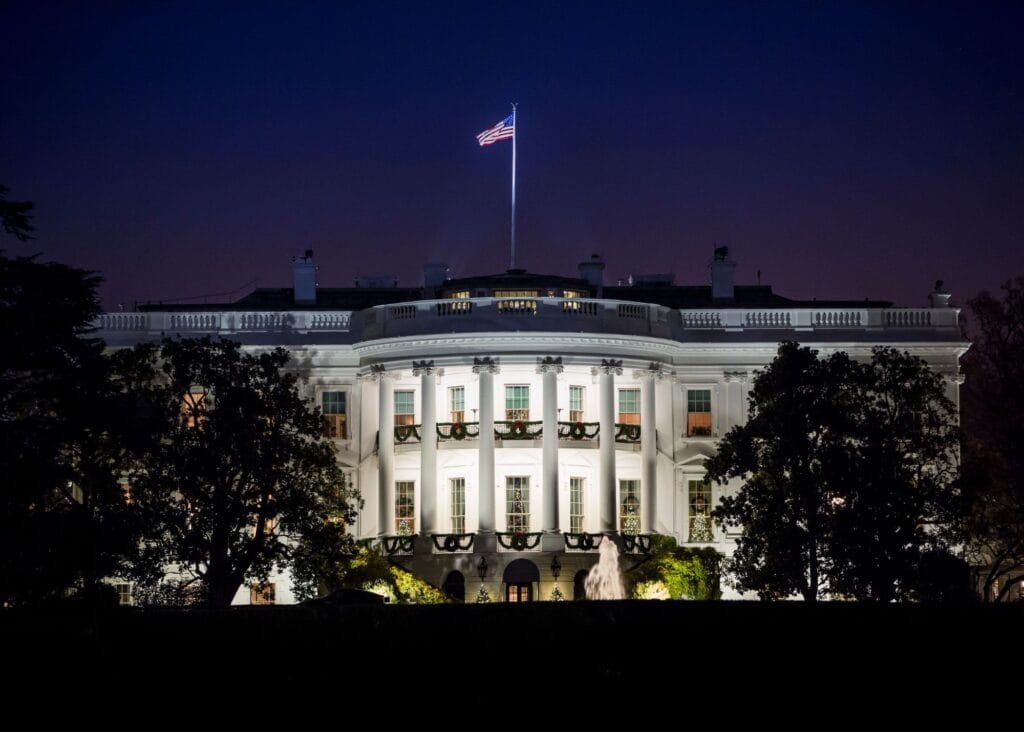
A $15 Billion Blueprint for U.S. Biotech Leadership
In its report, the bipartisan commission lays out a comprehensive strategy to reboot America’s biotech prowess and “propel us ahead of China in the 21st century”. The plan contains six pillars and 49 specific recommendations, but three areas stand out: a massive infusion of funding, new guardrails on U.S.-China collaboration, and major investments in domestic manufacturing and talent. Commission Chair Sen. Todd Young said the goal is to “bring the best and brightest in biotechnology to innovate boldly” and remove obstacles that have left the U.S. lagging. Below are the key prongs of the recommended action plan:
- Invest $15 Billion to Turbocharge American Biotech: The commission calls for at least $15 billion in federal investment over the next five years to spur U.S. biotechnology innovation. This funding would serve as a “CHIPS Act” moment for biotech, unlocking private capital and public-private partnerships to scale up new technologies. About $1.2 billion of it would go through the Defense Department for military-focused biotech research (e.g. shelf-stable blood products for medics, bioengineered materials for equipment). Sen. Young argues $15B is the “bare minimum required to restore U.S. competitiveness in biotech”, warning that “if you want the Chinese to get ahead of us, spend less”. The money would fund R&D, support startups, and help American biotech firms scale breakthroughs into products – an area where China currently excels by marshaling state resources.
- Impose Guardrails on U.S.-China Collaboration: To prevent China from leapfrogging the U.S. using American technology and know-how, the commission urges tighter restrictions on certain collaborations and investments. This includes “imposing new restrictions on Chinese investment” in U.S. biotech companies to protect sensitive intellectual property and prevent Beijing’s influence over critical firms. It also recommends barring U.S. companies from working with Chinese biotech suppliers that pose national-security risks. In practice, that could mean more scrutiny or bans on research partnerships with Chinese entities linked to the state or military. The commission also highlights the need to block China from obtaining sensitive U.S. biological data (for instance, genomics data) that could be misused. These guardrails reflect a hardening consensus that not all collaboration is benign – some ties may actively undermine U.S. security or fuel China’s rise at America’s expense. Tightening these links is a delicate balance, as open scientific exchange has benefits, but the panel’s message is that national security must come first.
- Strengthen Domestic Biomanufacturing and Supply Chains: A major theme of the report is reducing America’s dangerous dependence on China for biotech supplies by “mobilizing the private sector to get U.S. products to scale”. The commission urges investments to boost domestic manufacturing of critical biotech products – from pharmaceuticals and vaccines to raw materials like reagents – so that the U.S. isn’t reliant on Chinese factories. Biotechnology can “be the key to increasing supply chain security, resilience, and scalability”, the report notes. This might involve incentives to build biomanufacturing facilities in the U.S., government stockpiling of key materials, and closer industry-government coordination on supply chain vulnerabilities. By reshoring production, the U.S. can ensure access to critical components under any circumstances. The payoff is not only security but economic: expanding bio-industrial capacity would create American jobs and rejuvenate high-tech manufacturing. It’s a page from China’s playbook – leverage biotech to “revitaliz[e] our manufacturing sector” – but applied to U.S. infrastructure.
- Cultivate a Robust Biotech Talent Pipeline: The commission warns that the U.S. cannot lead in biotech without dramatically expanding its skilled workforce. One of its six pillars is to “build the biotechnology workforce of the future”, ensuring the country has the brainpower at all levels to drive innovation. The report recommends programs to train and recruit talent across skill levels, from Ph.D. researchers to biomanufacturing technicians. This could include new STEM education initiatives, biotech training at community colleges, and fellowships to place scientists in government. Importantly, the commission also suggests attracting top international talent – while “retain[ing] trusted foreign talent” – implying reforms to immigration and visa policies to welcome biotech experts from allied countries (and to ensure those with ties to adversaries are vetted). By investing in human capital, the U.S. can fuel an innovation engine that not only catches up to China’s vast talent pool but surpasses it. As Senator Alex Padilla noted, biotechnology will create “good paying jobs at all skill levels” in industries nationwide if the workforce is prepared to seize those opportunities.
Notably, the commission also calls for elevating biotechnology as a national priority on par with other security issues. It even suggests creating a White House-level office to coordinate biotech strategy across government – a clear sign that piecemeal efforts won’t suffice. Taken together, the plan is the most ambitious blueprint to date to secure U.S. biotech leadership in the face of China’s challenge. Its mix of funding, policy tightening, and capacity-building reflects a “whole-of-nation” approach akin to Cold War-era science initiatives.
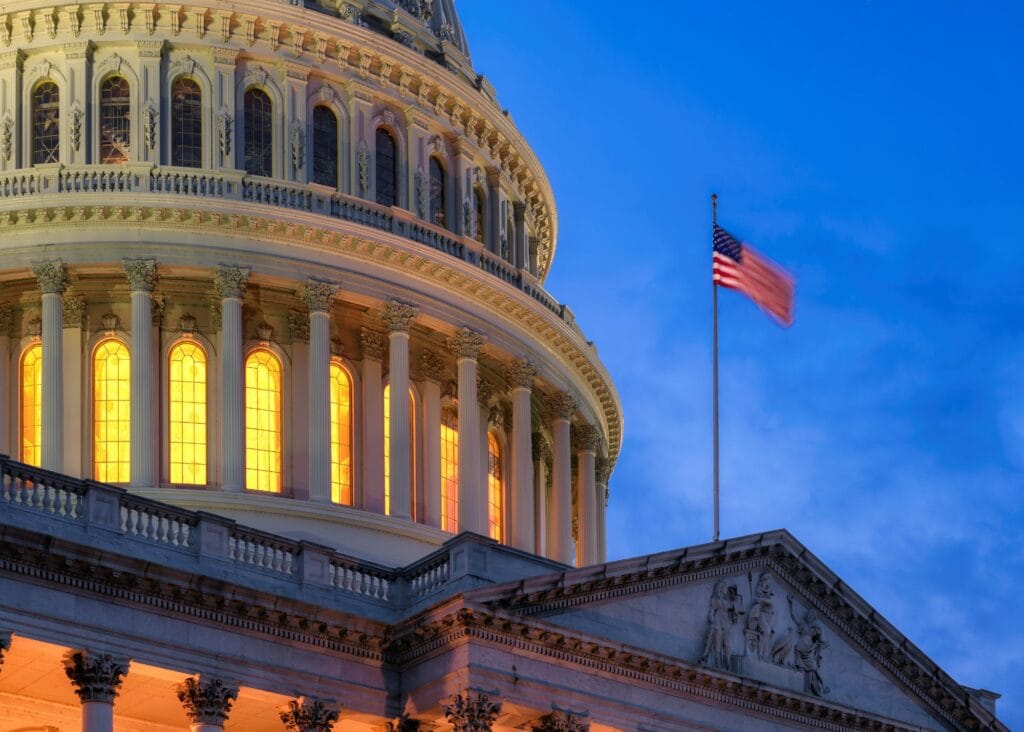
Biotech Leadership: A 21st Century Imperative
America’s biotechnology edge is more than a point of pride – it is increasingly seen as vital to national security, much like air superiority or cyber defense. The U.S.-China rivalry in biotech is often compared to a new kind of arms race, one fought with genes and molecules instead of missiles. If China becomes the dominant biotech superpower, it would gain not only economic clout but leverage over global health, agriculture, and security norms. U.S. leaders are therefore grappling with a pivotal strategic question: how to sustain American preeminence in a field that could shape the balance of power in the decades ahead.
The commission’s report delivers a clear verdict that urgent action is needed. Its recommendations amount to a call for a national mobilization on biotechnology – rallying government, industry and academia to innovate faster, invest bigger, and guard against strategic threats. This is a rare area of bipartisan agreement, uniting lawmakers who see the writing on the wall. Implementing this agenda won’t be easy or cheap. It will require Congress to prioritize billions in funding despite budget pressures, and to tighten controls on China at a time of tense bilateral relations. But the cost of inaction, the report implies, would be far higher. “We can either pay now or pay a lot more later,” as Sen. Young put it, referring to lessons learned from losing semiconductor manufacturing to Asia decades ago.
Both the geopolitical and economic stakes are enormous. Biotechnology is poised to revolutionize industries and militaries alike; whoever leads in this domain will set the terms of the future. The U.S. still has immense strengths – world-class universities, deep venture capital, a culture of innovation – but maintaining its lead is no longer automatic. It must be fought for. As the commission’s vice chair Dr. Rozo observed, China’s head start was built deliberately over 20 years; now America must “reassert our global leadership to remedy this strategic weakness”. That means betting big on the tools of life science and ensuring they’re developed on U.S. terms.
In the coming months, Washington will decide how to act on these recommendations. The debate will test how the U.S. balances open scientific collaboration with safeguarding security, and whether policymakers can summon the will (and dollars) to launch a biotech revival. The tone of the discussion, however, has unmistakably changed: biotechnology is no longer seen as a niche or purely commercial sector, but as a pillar of national power. From Capitol Hill to the White House, there is a dawning realization that the biotech race with China is a race the United States cannot afford to lose. The new frontier of competition is here – in cells, proteins, and algorithms – and the nation that masters biotechnology will secure both prosperity and security in the decades to come.









